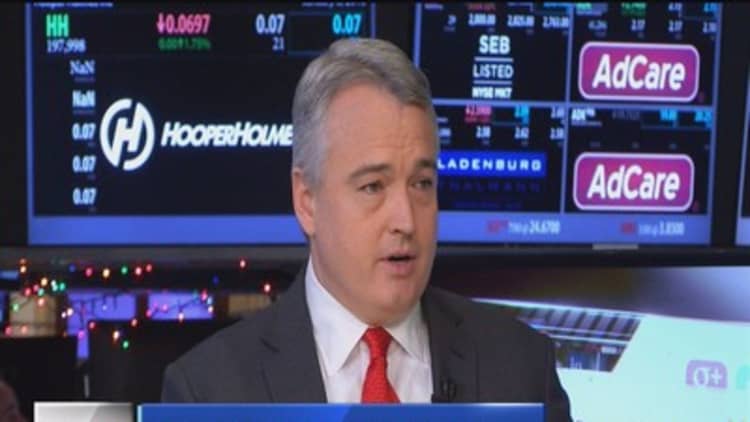
As a sell-off plagued the markets on the first trading day of the year, Internet stocks saw a steep downturn.
Amazon fell more than 7 percent over the week and its fellow large cap Internet stocks followed suit, leaving investors wondering if these names can maintain their performance record into 2016.
Heath Terry, head of Internet equity research at Goldman Sachs, told CNBC's "Squawk Alley" that this scenario is a return to what Internet stocks looked like for most of the Internet's first 10 years of existence.
"The difference is, now we've got four big leaders as opposed to the past when we only had one or two," he said.
Going forward, Terry said investors will value strong balance sheets among these leaders, also known as the FANG (Facebook, Amazon, Netflix, Google) stocks. He said Google has the strongest balance sheet followed by Facebook and Amazon but Netflix remains an outlier within the group.
Terry said not just strong balance sheets but strong growth is a large driver in choosing his top stock picks. However, balance sheets will still remain at the forefront of investors' minds.
"As we go into this year where investors are looking at a much more rocky macroenvironment, balance sheets are going to matter a lot more," he said. "Companies that have been creating earnings by using their balance sheet to buy back cash are probably going to be less favored than they were in the previous couple of years."
Terry's 12-month price targets show that he is expecting large percentage gains from companies that got beaten down in 2015: Pandora, GrubHub and Twitter.
"For every one of those companies that was down 40-50 percent last year, you can also, though, draw a straight line anywhere between three to a dozen venture-funded, private companies that were working without the same kind of profit motive that were really drawing not only consumer dollars but also investor dollars away from that group of stocks," he said. "We think for a lot of reasons that's going to reverse this year."



